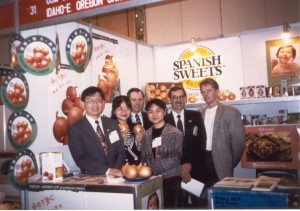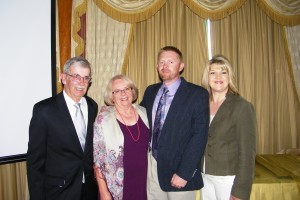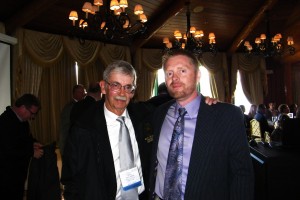On Jan. 16, describing the not-quite-finished epic snowstorm wracking the Treasure Valley of Idaho-Eastern Oregon with millions of dollars in widespread damages to the onion industry and to everyday life, Garry Bybee of Fiesta Farms said simply, “I pray a lot.”
Garry, the fourth generation of Bybees involved in growing, packing and shipping onions, said his perspective from the Nyssa, OR, offices of Fiesta are a snapshot of what has hit the region.
“It’s devastating to the Valley,” he said. “So many companies have lost sheds and lines, and it’s hard to put together how many there are. Really, it’s all over the Valley, and the bad part is that it’s not over. It’s like the Arctic here today, negative 6 this morning, and it’s not getting higher than 12 degrees all day. More snow is coming this week.”
Garry continued, “I understand there have been more than 120 claims from just two insurance agencies. I feel a lot of anxiety and sorrow for those who’ve been hit by this.
As Jan. 16, regional news agencies were reporting approximately 18 Treasure Valley storages/packing facilities from Weiser to Parma collapsed under the weight of snow and ice that had accumulated during the recent storm. Other commerce was disrupted as well.
“I took my wife shopping on Saturday, and the first supermarket we went to in Ontario was closed because part of the roof had collapsed,” Garry said.
Just two weeks earlier, in an interview with OnionBusiness.com, the conversation with Garry was centered on his more than four decades in the business and the changes he’s seen since he began his onion career. This event will now rank high on the list as far as impact, but the first week of January brought out characteristic Bybee humor.
“I guess one of my favorite memories,” he said coming into 2017, “was when we made a lot of money and had a high price on our onions.”
And as for the most enjoyable period of his long and distinguished ride, he said unequivocally, “It was when my son Marc and his wife joined the company. And now my wife Ronda and I have grandkids who are working here.”
In 2014 Fiesta Farms entered a partnership with Eagle Eye Produce for sales and marketing of Fiesta’s Spanish Sweet onions, which Marc said “allows Garry to be the professional golfer he has wanted to be” as well as the flexibility to handle clients he’s worked with for decades.
That change, as well as modifying day-to-day operations over the years, prompted Garry to say recently, “I see the way Marc and Tamara run things, and it is so much better. I think I was a renegade when I ran it, and they run a really nice operation.”
But the “renegade” brings a wealth of acquired experience to his game now, having come into Fiesta in the early 1970s. Garry and his siblings took the reins of a company originally started under a different name in the mid-1940s by their father and uncle, and in the late 1970s he purchased the entire operation. Marc, now president, and Tamara, corporate secretary, came on in 1996, the same year a fire destroyed the facility and the family pulled together to rebuild. Marc and Tamara’s son, Yuta, works in the shed, and daughter Lily works in the office, and Garry, CEO, continues to work with his select group of clients.
Garry said the fire was “a real turning point,” that losing the whole facility made it clear to the group it was family that would sustain them, and from the ashes arose a new operation with modernized equipment and ongoing progress.
Now that he has scaled back somewhat in his daily routine, Garry Bybee can look back at his accomplishments with well-deserved credit. Though he’s spent most of his life working in onions, he actually gained considerable experience in several other industries prior to this incarnation.
His varied background includes working in electronics for Motorola and also working in the missile industry. He once said, “After working for large corporations and answering to people over me, it was wonderful to be in a situation where I made my own decisions,” he said.
Not every memory nor change is good, of course, and Garry said, “I guess the most difficult thing is the people who’ve died. We’ve lost many. And to see all the people who quit the industry. Or the companies that merged or got bought out on the receiving end. The new people in that part of the industry don’t necessarily know you.”
In the Treasure Valley, pre-storm, the count was at 30 packers/processors, “up from 15 or 20 when I started in the business,” Garry said. “And the technology today is really unbelievable. The equipment does so much more than it used to. I remember doing business by mail, and now it’s done by phone and computer. I don’t necessarily like that new part of the system because I’m one of the old guys.”
Now that he’s “resting on my laurels,” Garry said he misses talking to some of the folks he communicated with on a regular basis. He decries increasing government regulations and the food safety manual that’s “several inches thick,” and he looks forward to the new administration.
“I’ve had the opportunity to travel most of the world since I’ve been in this business. All our trade efforts are worthless until people need something. That’s when they buy from us. We can’t afford, with our rules and regulations, to compete with those countries, and I’m anticipating good changes coming up. I just hope there are not too many roadblocks,” Garry Bybee concluded.






